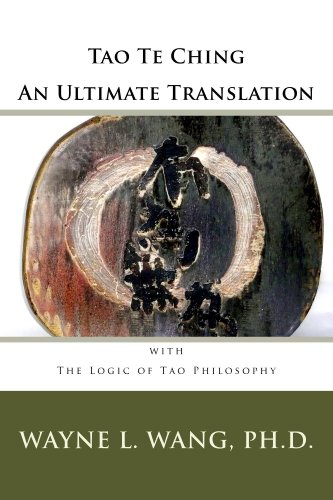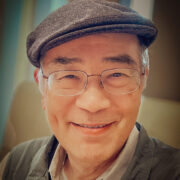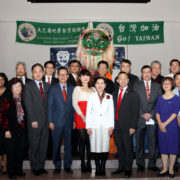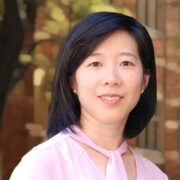Tao Te Ching: An Ultimate Translation
作者 : 王文隆

Indeed, the concept of Tao has fascinated us for thousands of years. Countless people have benefited from reading it. Numerous Chinese scholars and many Western scholars have analyzed and commented on the Tao Te Ching道德經.
New InterpretationWhat could be the justifications for another interpretation and translation of the Tao Te Ching? The following are the major reasons. First of all, we can now treat Lao-tzu as an ancient philosopher, instead of a mystic. His philosophy may be compared with that of the Pre-Socratic and the Buddhist. In The Logic of Tao Philosophy, we have shown that there is a clear logic in Tao philosophy. For the first time in its history, we may be able to have a self-consistent interpretation of this Chinese classic. We can identify clearly the source of the mysteries of Tao. We can also show that Tao philosophy is a normal ancient philosophy of nature, which can be comprehended logically. Our fascination with Tao may now be enhanced by our true comprehension of the Tao Te Ching. Even with the highly suggestive nature of its verses, the Tao Te Ching does not have to be ambiguous and purely speculative. We no longer have to face a long history of irresolvable paradoxes and self-contradictions. With the new logic, our understanding of the Tao Te Ching will not be limited and fragmentary. With this new interpretation, we shall see that the principle of Tao is not unfathomable. With the new foundation, we may pursue reasoned speculative interpretations without deviating from a core principle. We may understand why we can claim that the Tao Te Ching is an important “foundation” of Chinese philosophy. We can also show that Tao philosophy is similar to many other ancient philosophies. Contrary to the prevailing belief, Tao is a philosophy of nature, and it is not a Chinese-only philosophy.
|
New Foundation for InterpretationThe foundation of our new interpretation is the core principle of Tao, which can now be clearly and logically comprehended. We have described the newly-discovered principle systematically in The Logic of Tao Philosophy [Wang 2013]. With this principle, we may have a new understanding of the logic structure in the Tao Te Ching. The principle and the logic of Tao may be reflected in our new interpretation. With the coherent logic structure, this interpretation will reflect an ultimate principle of Tao. This ultimate principle has been enshrouded in historical interpretations, but it appears unexpectedly and clearly in our analysis of the Tao Te Ching. Although this principle has been well hidden in the first Chapter of the Tao Te Ching, we have been able to reveal it after 15 years of investigation. The principle now emerges a new from its deeply-enshrouded cavern of historical commentaries. Under a separate cover, we have described this principle and logic of Tao systematically with precision. A summary of this principle is described in the Introduction. Purpose of this BookWe shall interpret the verses of the Tao Te Ching according to the principle of Tao and the logic structure described in our systematic model. The purpose of this book is to validate if this principle of Tao can be reflected in a coherent and logical interpretation of the Tao Te Ching. If we succeed in this validation, this will disclose a new path for our future inquiry into Tao philosophy. That is, we may use this model to build a new platform to discuss Tao. |
AuthorWayne L. Wang was born in Taiwan and migrated to the U.S. for his graduate studies in engineering and physics. In 1971, Dr. Wang received his Ph. D. degree from Massachusetts Institute of Technology. He did research as a theoretical physicist until 1975, publishing numerous papers on nuclear reaction theory. After spending five years on nuclear reactor safety research, he became a telecommunication engineer specializing in advanced mobile telecommunication systems and data communication. His cultural background spans equally both the Eastern and Western worlds. The similarities between Tao and quantum physics have attracted his early interest in Tao Philosophy. He believes that Tao is coherent and dynamic, and it may be systematically represented as a modern theory. With his background in the Chinese language and modern physics, he has been able to formulate a Tao philosophy in a most coherent and consistent manner. He introduces a scientific process to formulate Tao Philosophy in a language independent fashion. He has successfully translated the most difficult Chinese classic, the Laotzu Tao Te Ching, with minimum ambiguity. His first book on this subject, Dynamic Tao and Its Manifestations, shows the intimate similarities between Tao Philosophy and Quantum Cosmology. His analysis of Tao Philosophy will set a new framework for modern Tao studies, in both the Eastern and the Western arenas. |





